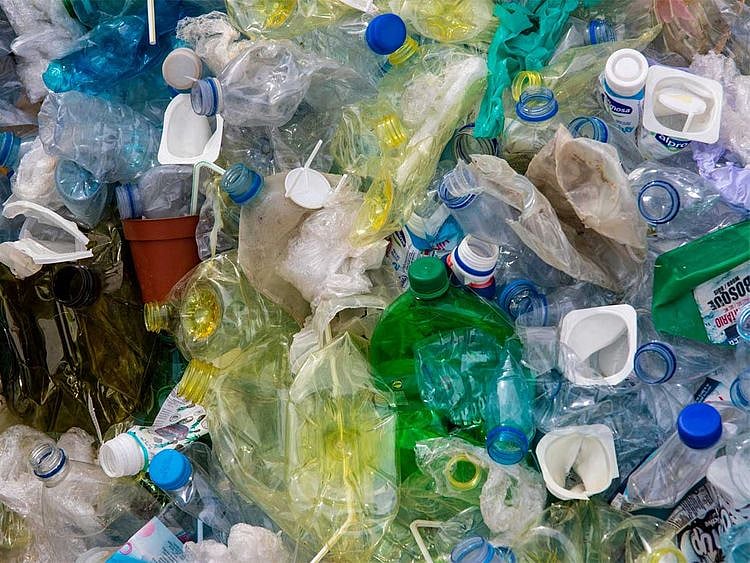A recent ‘National Geographic’ article spoke about a new study on a species of coral found in Rhode Island. What’s interesting and alarming to scientists is what this animal has turned to for sustenance. These wild corals were found to be feeding on plastic, preferring it over their natural food.
The world has produced 8.3 billion tonnes of plastic from the 1950s up to 2017, and less than 9 per cent of this plastic has been recycled so far. With micro-plastics becoming more ubiquitous in nature, the discovery of the plastic-feeding coral will not be an isolated incident.
In recent times, there have many efforts taken by governments and entities to tackle this mounting issue, starting with a ban on single plastic use. While the Canadian government has promised the ban will be in place by 2021, the state of Vermont in the US will implement measures in 2020. With the UAE being one of the world’s highest consumers of single-use plastic, the nation has also taken significant efforts to propel this movement forward.
Dubai Airports and Emirates have announced plans to reduce single-time plastic usage within their domain. A majority of these measures have involved a ban on bags, straws, bottles — promising substantial reduction in plastic being diverted to landfills.
While plastic bans are a huge step in the right direction, changes in buying habits can be more impactful in the long run. According to the Ministry of Environment and Climate Change, 11 billion plastic bags are used annually in the UAE. Bee’ah, Sharjah’s waste and environmental management company, has stated that it processes around 37.50 million plastic bags.
What if these plastic bags were never produced or used? What if there was an alternative that could be used, without concern of proper recycling and recovery?
This train of thought has led to a new revolution in the usage of bioplastic bags. While this product has been years in the making, technological advancements and research have yielded economically viable alternatives. The bags are made from vegetable products, and are 100 per cent natural, certified as non-toxic, and harmless to animals if accidentally consumed.
While plastic takes around 450 years to decompose, these bags disintegrate into carbon dioxide in three to six months. They recycle with little to no effort, while biodegradable plastic requires water and other resources to support the recycling process.
Compostable bags have recently entered the UAE market, with retail chains like Virgin and Spinneys claiming early adoption. Recently, bioplastic bags have picked up momentum in Sharjah, with Bee’ah aiming to introduce the bags across the emirate.
Sharjah has set a goal of diverting all of its waste away from landfill. Sharjah currently has the Middle East’s highest diversion rate of 76 per cent. Bee’ah is now building the region’s first waste-to-energy plant in the emirate, through a partnership with Masdar. Once this plant becomes operational in 2021, Sharjah will become the region’s first zero-waste city.
However, the company is well aware that urbanisation and growing population levels will lead to an increase in waste generation rates, with plastic contributing to the bulk of non-recyclable material collected. In order to prevent this, Bee’ah has instated an emirate-wide campaign to make Sharjah plastic-free within the next five years. Starting with bioplastic bags, Bee’ah hopes to introduce products like bioplastic cutlery and straws, to eliminate single-use plastics.
In addition to preventing environmental pollution, this transition to bioplastic bags will free up landfill space and prevent the emission of gases such as methane through waste accumulation. The World Economic Forum estimates that after a short first-use cycle, 95 per cent of plastic packaging material — which is worth up to $120 billion (Dh440.6 billion) — is lost to the global economy every year. Bioplastic alternatives will also prevent such long-term losses.
While the future looks bright thanks to alternative sources, the UAE has still a long way to go in recovering its accumulated plastic waste. Less than 10 per cent of the country’s total plastic waste is currently recycled. Bee’ah’s Material Recovery Facility is one of the world’s largest producers of recovered plastics, and has doubled its plastic film recovery rates.
Through a combination of bioplastic products and advanced recovery technologies, Sharjah is not only reducing plastic use, but also making a zero-plastic goal seem very achievable. By 2024, Sharjah hopes to be a zero-waste, plastic-free city, an ambition that is an inspiration for countries worldwide.
Efforts like these are also a reminder that unless we wean ourselves off our plastic-dependent purchase habits, we will be weaning corals off their plastic-eating habits. A reality that is stark to anticipate, but easily avoidable by making the right choice.
A penny for a bioplastic bag, anyone?
— Khaled Al Huraimel is Group CEO of Bee’ah.
Sign up for the Daily Briefing
Get the latest news and updates straight to your inbox
Network Links
GN StoreDownload our app
© Al Nisr Publishing LLC 2026. All rights reserved.
